
Oct 30, 2020 | Safer Upstate, Staying on Top, Uncategorized
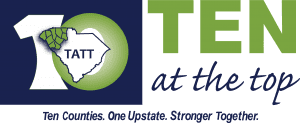 Following a series of four meetings convened through Ten at the Top (TATT), the Creating a Safer Upstate Discovery Committee has announced a series of recommendations designed to promote collaboration among stakeholders in fostering a culture in the Upstate that respects and values the lives of all officers and residents. To view the list of recommendations, click here.
Following a series of four meetings convened through Ten at the Top (TATT), the Creating a Safer Upstate Discovery Committee has announced a series of recommendations designed to promote collaboration among stakeholders in fostering a culture in the Upstate that respects and values the lives of all officers and residents. To view the list of recommendations, click here.
The Discovery Committee was originally convened by Terence Roberts, Chairman of the Ten at the Top Board of Directors and the Mayor of the City of Anderson, following a number of highly publicized instances of police force across the country.
“While our region has been fortunate not to have seen the violence and social unrest that has occurred in other parts of the country, we do recognize that not every Upstate resident feels safe or trusts our law enforcement officers, Roberts said. “We felt with the platform already established by Ten at the Top to be a neutral convener, that we had an opportunity to proactively engage stakeholders across the region around the topic of creating a safer region for all residents.”
The Creating a Safer Upstate Discovery Committee consisted of more than 50 representatives from local governments, law enforcement, community organizations, faith leaders and Upstate businesses. The committee met virtually four times to discuss opportunities for how to create a united Upstate region where all stakeholders work collaboratively to ensure that we foster a culture that respects and values the lives of our law enforcement officers and all residents.
As the primary strategy, the Discover Committee recommends the development of a Safer Upstate Steering Committee to represent, support and communicate local efforts to improve relationships between law enforcement and community residents across the region. The Safer Upstate Steering Committee will focus on the following three goals:
1. Engage law enforcement officials, community leaders and residents to work together to build healthy working relationships that elevate mutual respect, value cultural differences, and acknowledge the roles and responsibilities that each play in creating safer Upstate Communities.
2. Provide regular opportunities for law enforcement and community leaders to convene to proactively discuss community issues and emerging law enforcement topics while exploring approaches that can be implemented across the Upstate Region.
3. Enhance public trust by identifying, sharing and implementing best practice approaches for developing a sustainable, healthy relationship between law enforcement officials and the greater Upstate Community.
The Steering Committee will be under the leadership of co-chairs Sheriff Rick Clark and Stinson Ferguson. Both Upstate natives, Sheriff Clark has been the sheriff of Pickens county since 2013 while Ferguson is Special Counsel for Haynsworth Sinkler Boyd, P.A. in Greenville.
More information about the Safer Upstate initiative can be found at www.tenatthetop.org. Anyone interested in becoming a member of the Safer Upstate Steering Committee is invited to reach out to Justine Allen, TATT Program Manager, at jallen@tenatthetop.org or 864-283-0346.
ABOUT TEN AT THE TOP
Comprised of public, private and civic leaders from across the ten-county Upstate South Carolina Region, Ten at the Top was created to connect and encourage regional collaboration through data-driven research and regular convening of leaders and citizens to address key issues facing the region. Ten at the Top works with regional partners to foster collaboration and strategic planning to enhance the economic vitality and quality of life for Upstate residents both today and as the region continues to grow. For more information, visit www.tenatthetop.org.
To view the list of recommendations, click here.
Creating a Safer Upstate Discovery Committee Members
|
First Name
|
Last Name
|
Organization
|
Position
|
|
Katherine
|
Amidon
|
Synterra
|
Market Leader, Environmental Planning
|
|
Bill
|
Barnet
|
Barnet Development Group
|
CEO
|
|
Steve
|
Brown
|
Greenwood County
|
Chairman
|
|
Carol
|
Burdette
|
United Way of Anderson County
|
President
|
|
Paul
|
Cain
|
Oconee County
|
Councilman
|
|
Becky
|
Callaham
|
Safe Harbor
|
Executive Director
|
|
Rick
|
Clark
|
Pickens County
|
Sheriff
|
|
Roy
|
Costner
|
Pickens County
|
Chairman
|
|
Michael
|
Cunningham
|
AnMed Health
|
Vice President for Advancement
|
|
Rick
|
Danner
|
City of Greer
|
Mayor
|
|
Chandra
|
Dillard
|
SC House
|
Representative
|
|
Sean
|
Dogan
|
Urban League of the Upstate
|
Interim CEO
|
|
Stephanie
|
Enders
|
Ripple of One
|
Executive Director
|
|
David
|
Feild
|
Colliers International
|
Market President
|
|
Stinson
|
Ferguson
|
Haynsworth Sinkler Boyd
|
Special Counsel
|
|
Santana
|
Freeman
|
City of Abbeville
|
Mayor
|
|
Freddie
|
Gault
|
Office of Congressman William Timmons
|
Outreach Director
|
|
LaTorrie
|
Geer
|
Community Works
|
Chief Operating Officer
|
|
Danielle
|
Gibbs
|
Senator Scott Office
|
Upstate Director
|
|
Charlie
|
Hall
|
Upstate Warrior Solution
|
Executive Director
|
|
Matt
|
Hamby
|
City of Greer
|
Police Chief
|
|
Michael
|
Hildebrand
|
Upstate Mobility Alliance
|
Director of Inclusion & Diversity
|
|
Dan
|
Holland
|
Oconee County
|
Cultural Diversity Director
|
|
Todd
|
Horne
|
Clayton Construction
|
Vice President
|
|
Missy
|
House
|
City of Inman
|
City Administrator
|
|
Tammie
|
Hoy Hawkins
|
Community Works
|
CEO
|
|
Dean
|
Hybl
|
Ten at the Top
|
Executive Director
|
|
Scott
|
Junkins
|
Harris Flooring America
|
Owner
|
|
Kimbrelly
|
Kegler
|
Michelin
|
Future Product Portfolio Leader
|
|
Dennis
|
Kelly
|
Greenwood County
|
Sheriff
|
|
Mitch
|
Kennedy
|
City of Spartanburg
|
Assistant City Manager
|
|
Butch
|
Kirven
|
Greenville County
|
Chairman
|
|
Sonny
|
Ledda
|
City of Clinton
|
Police Chief
|
|
Jil
|
Littlejohn
|
Hubbell Incorporated
|
Director of Inclusion & Diversity
|
|
Erwin
|
Maddrey
|
Maddrey & Associates
|
CEO
|
|
David
|
McCuen
|
City of Anderson
|
City Manager
|
|
Keith
|
McDaniel
|
Macedonia Missionary Baptist Church
|
Pastor
|
|
Adela
|
Mendoza
|
Hispanic Alliance
|
Executive Director
|
|
Stacey
|
Mills
|
USC-Upstate
|
University Center Executive Director
|
|
Amanda
|
Munyan
|
Laurens County Chamber
|
President
|
|
Floyd
|
Nicholson
|
SC Senate
|
Senator
|
|
Carlos
|
Phillips
|
Greenville Chamber
|
CEO
|
|
Andrena
|
Powell-Baker
|
Lockhart Power
|
Senior Manager
|
|
Tricia
|
Ravenhorst
|
SC Coalition Against Domestic Violence
|
General Counsel
|
|
Terence
|
Roberts
|
City of Anderson
|
Mayor
|
|
Jim
|
Shew
|
Marsh & McLennan
|
Vice President
|
|
George
|
Shira
|
Milliken
|
Vice President of Human Resources
|
|
Paige
|
Stephenson
|
United Way of the Piedmont
|
President
|
|
Jim
|
Stewart
|
City of Anderson
|
Police Chief
|
|
Harold
|
Thompson
|
City of Union
|
Mayor
|
|
Alonzo
|
Thompson
|
City of Spartanburg
|
Police Chief
|
|
Theresa
|
Thompson
|
Upstate Warrior Solution
|
Deputy Director
|
|
Wendy
|
Walden
|
Greenville Tech
|
Associate Vice President
|
|
Greg
|
Whitaker
|
Clemson University
|
Deputy Campus Police Chief
|

Oct 28, 2020 | Staying on Top, UpstateVibe365
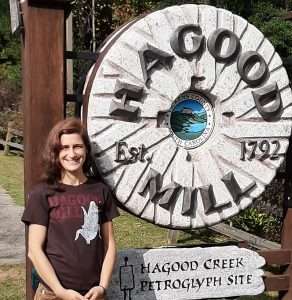
Katie Mann, Assistant Director, Hagood Mill Historic Site
The COVID-19 pandemic has created a sudden, massive public need for trustworthy digital inclusion services. Millions of Americans need support from digital inclusion programs: to get connected with affordable home internet, find affordable computing devices, and learn basic digital skills. “Digital Navigators” is an adaptation of traditional digital inclusion programming to this new reality, providing one-to-one dedicated support via phone service. Let’s explore the power of networking to see how these challenges are being overcome in the small town of Pickens, SC, located in the foothills of the Blue Ridge mountains.
There are many organizations that have come together to work on this common goal to help the public in need of short term assistance to overcome the challenges of digital access. Let’s start with the Hagood Mill Foundation (HMF), the most unlikely collaborator to this cause. HMF is the non-profit organization that runs the day-to-day operations of the Hagood Mill Historic Site. HMF is dedicated to the protection, preservation, and study of South Carolina Upcountry life and culture.
The historic site itself is named for the Hagood Mill, the oldest operating grist mill in South Carolina. Built in 1845, the mill is celebrating 175 years this year! Over the years, the Hagood Mill has been a food hub and a place to gather and share stories. While the general public no longer brings their home grown grains to grind at the Mill, it certainly comes to enjoy the running of the Mill every third Saturday at the Folklife Festivals, where folks can see living history demonstrators and purchase their grits, cornmeal and other especially flours fresh from the grinding stone.
The Vice Chair of the HMF, Dr. Betty McDaniel, serves as a full time volunteer with multiple organizations, now that she is a retired school teacher. Grant writing, networking and cross collaborations are some of her strengths. She was notified of a last minute grant opportunity by her colleague, Bob Reeder, to work on the very important issue of digital inclusion. Bob Reeder is the Program Director of Rural Local Initiatives Support Corporation (LISC), where he oversees a portfolio of 72 Community Development Corporation (CDC) Partners in over 43 states. One of many of Rural LISC’s programs is digital inclusion.
Rural LISC has teamed up with the National Digital Inclusion Alliance (NDIA) to make this project possible. The NDIA is a unified voice for home broadband access, public broadband access, personal devices and local technology training and support programs. They work collaboratively to craft, identify and disseminate financial and operational resources for digital inclusion programs while serving as a bridge to policymakers and the general public.
When Dr. McDaniel was approached by Mr. Reeder, she put the Hagood Mill’s Assistant Director, Katie Mann, to the task of applying for the grant. With the event cancellations due to COVID, and the need to expand virtual offerings at the Hagood Mill, the grant has also supported the Hagood Mill in expanding its own digital capabilities. Thus far with the grant monies, the Hagood Mill has invested in expanded WiFi around the site and a new computer in the Hagood Creek Petroglpyh Site, a museum dedicated to prehistoric rock art and Native American art and artifacts, which is also located on Hagood Mill grounds. The general public is welcome to come use this computer during regular operating hours to conduct research or simply surf the web.
Ms. Mann has networked with Barbara Nesbitt, the Assistant Superintendent for Technology Services at the School District of Pickens County, to identify families in need of digital assistance. Ms. Mann has begun distributing computers, laptops, and cash vouchers to those in need of help paying for their internet service. The funding allows HMF to support 50 clients with $250 allotted for each client. We are still seeking clients to assist, so if you are in Pickens County and could use help closing the digital divide, reach out to Ms. Mann.
The Hagood Mill has also networked with the Public Library in Pickens, who have not been able to offer their digital literacy trainings due to the COVID pandemic. They will use the Heritage Pavilion, a large, open-air pole barn to schedule trainings in a space that is easy to remain socially distant.
The power of networking is highlighted here in this digital inclusion story. As individuals, it is hard to achieve our goals, especially when we are trying to overcome challenges presented by the COVID pandemic. Together we can achieve so much. If Mr. Reeder had not reached out to his colleague Dr. McDaniel, the HMF would not have this opportunity to assist community members in closing the digital divide. Keep networking y’all!
Author Katie Mann, is the Assistant Director at the Hagood Mill Historic Site, and is serving as the Digital Navigator and dispersing the funds of the grant to those most in need of assistance. You can call Ms. Mann to learn more at 864-214-6504. The Hagood Mill Historic Site is open Wednesday to Saturday, 10 am – 4 pm. Hagood Mill’s number is 864-898-2936. www.hagoodmillhistoricsite.com

Oct 28, 2020 | Staying on Top, UpstateVibe365

Stinson Ferguson, Co-Chair, Ten at the Top Safer Upstate Committee
By Sheriff Rick Clark and Stinson Ferguson, Co-Chairs, Ten at the Top Safer Upstate Committee
While personal and community safety have always been vital components of society, the pandemic and social outcries of 2020 have made these topics top of mind for all of us.
Over the past several months, law enforcement, local government, non-profit, social services, and community leaders from across the Upstate convened four times as a discovery committee for a series of discussions around the topic of “Creating a Safer Upstate.”
We recognize the need to be proactive in discussing how and taking action to create a culture where the lives of all law enforcement officers and all residents are treated with equal importance.
Regardless of whether your experience or concern around the issue is from the perspective of law enforcement or as a member of the greater community, it is critical to understand that each viewpoint is authentic, relevant, personal, and deserving of understanding and consideration as we work to chart a better path forward.
Throughout our discussions, the Upstate leaders involved have prioritized purposeful listening, inclusion, and respect of diverse viewpoints.
We have concluded that creating and maintaining a “Safer Upstate” is ultimately not the responsibility of just one group. Each and every one of us plays an important role in the journey.
Certainly, our law enforcement officers play a critical role, and have a responsibility to seek to understand the communities to which they provide service. However, it is also the responsibility of our community leaders – both seasoned and emerging – to help foster a productive and fertile environment for collaboration among law enforcement and local communities.
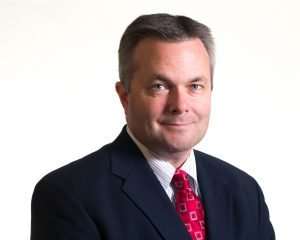
Sheriff Rick Clark, Co-Chair, Ten at the Top Safer Upstate Committee
After much conversation and deliberation, the discovery committee has decided to form the Safer Upstate Committee as part of the work of Ten at the Top (TATT). TATT is a regional non-profit working hard to foster collaboration and partnerships around issues that impact economic vitality and quality of life in the Upstate.
The purpose of the Safer Upstate Committee is to create a safer and more united Upstate Region where all law enforcement stakeholders work collaboratively with community leaders to foster a collective culture that respects and values the lives of all officers and residents. The Committee intends to represent, support, and communicate local efforts to improve relationships between law enforcement and community residents across the region.
Three primary goals for the committee have been identified:
1. Engage law enforcement officials, community leaders and residents to work together to build healthy working relationships that elevate mutual respect, value cultural differences, and acknowledge the roles and responsibilities that each play in creating safer Upstate Communities.
2. Provide regular opportunities for law enforcement and community leaders to convene to proactively discuss community issues and emerging law enforcement topics while exploring approaches that can be implemented across the Upstate Region.
3. Enhance public trust by identifying, sharing and implementing best practice approaches for developing a sustainable, healthy relationship between law enforcement officials and the greater Upstate Community.
A series of action steps have been identified for each goal to help individual communities and the greater Upstate advance towards being a united region that values the lives of all officers and residents.
As natives of the Upstate, we are excited to serve as co-chairs of this initiative, but recognize that it is much easier to identify a shared purpose and series of goals than it is to execute the mission.
Creating a Safer Upstate will take a shared commitment by law enforcement, community & business leaders and residents to work together without assigning blame or supporting stereotypes. We invite you to join us on this critical journey.
You can read the full set of recommendations and committee action steps and volunteer to become involved in the Safer Upstate initiative at www.tenatthetop.org.
Rick Clark is the Sheriff of Pickens County and a lifelong county resident. Stinson Ferguson is Special Counsel for Haynsworth Sinkler Boyd Law Firm in Greenville and a native of Spartanburg County.

Oct 23, 2020 | Staying on Top, UpstateVibe365
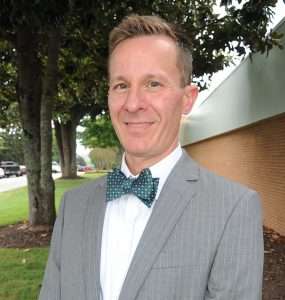
Dr. Galen DeHay, President, Tri-County Technical College
Welcome Terence Roberts, TATT Chairman
Guest Presentation Dr. Galen DeHay, President, Tri-County Technical College
You can watch the video recap here.
You can view the presentation here.
TCTC has created a safe on-campus learning and working environment, delivering high quality learning experiences for the 2020-21 academic year
Students include 17 to 60+ year olds
Changes and new methods include restructured fall instruction and redesigned virtual enrollment experience
Online training of faculty, advisors, coaches
Librarians and tutoring embedded into classes
Communications include town halls, open virtual office hours, weekly blogs
40-50% of employees on campus any given day with a mix of telework
Virtual and drive-in job fairs
Student Workforce Completion Fund for emergency funds for students and more to come
Students of color, low income students have been impacted heavily
Despite many challenges, resiliency is focused on with priorities to fit college into students’ lives, expand workforce pipeline, build new partnership, and strengthen community relationships.
TCTC is a great choice for quality, support, and cost.
TATT Updates Dean Hybl, TATT Executive Director
Events coming up include Upstate Professional Planners, Air Quality Advisory Council, Creating Upstate Unsung Heroes Virtual Event
County Updates
Anderson: Steve Nail, Anderson University
Largest private university in SC
Increase of 7%, 3,848 students
Boarders up 5%
Diversity at 18%, high rate historically
COVID 1% positivity rate
Long winter break starting before Thanksgiving
Greenville: Caroline Robertson, Greer Relief
Able to assist with rent, mortgages for many people with a great team of people and community support
Hiring a data entry person (remotely) 10-15 hours/week for the next year
Gearing up the Greer Christmas Parade on Dec 6th, largest fundraiser
Greenwood: Stephen Gilbert, Greenwood Community Theatre
Tough time in the entertainment industry
Outdoor concerts, we are going to try an outdoor Charlie Brown Christmas in Dec (literacy program)
Struggling with appropriate time to re-open and still be safe and a draw
Oconee: Suzette Cross, Blue Ridge Arts Council
Became involved with TATT through a grant and produced art around Seneca
Work with Hamilton Career Center
Housed in oldest church in Seneca
Have had tree fall on building and tornado damage but moving forward
Hosting Members gallery, art classes starting, and studio open
Working on two new murals in Seneca
Laurens: Amanda Munyan, Laurens Chamber of Commerce
Continuing support through funding, promotions, and education
Laurens City Council approved for reading to sell 66 acres to SK Builders out of Greer for a home development in Laurens
Excited about growth and development in the area

Oct 21, 2020 | Staying on Top, UpstateVibe365
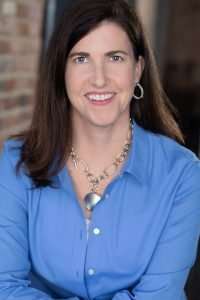
Dana McConnell, Executive Director, Center for Developmental Services
I remember the moment when CDS first realized we needed a plan for the looming pandemic. It was Monday, March 2, 2020 during our monthly partner meeting with all the organization leaders at CDS. We had just evaluated some of our programs and were about to move on to another topic when Dr. Desmond Kelly of Prisma Health Children’s Hospital asked about CDS’ plan if the coronavirus made its way to South Carolina.
The initial reaction was to pause a moment, allowing the thought to sink in that this virus could actually be a threat to our community. Then I remembered why our collaboration works so well…we benefit from each other’s resources. The response was an assurance that CDS will work with Prisma Health to implement the highest standards recommended to keep our staff and families safe.
The next few weeks were a whirlwind of conversations, emails and decisions between Janine Sally, Director of Kidnetics and the Wonder Center at Prisma Health, and Becky Jones, Director of Operations at CDS. The priority was to keep our building open and continue the critical care our families needed. It was going to take a strong, collaborative effort and compliance from the other partners to keep our doors open. Our partners worked together and stayed in constant communication to keep up with the latest information, guidance and statistics coming out of multiple news outlets.
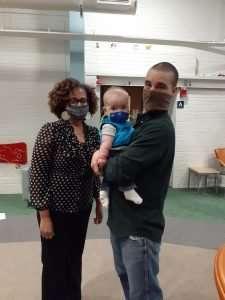
Salem & Isaac Maud with CDS staff member, Jataun Clark
Before I continue, it’s important give a brief description about CDS. The Center for Developmental Services (CDS) is a nonprofit located in downtown Greenville that links five other nonprofit organizations together to provide multiple services under one roof for children with developmental delays and disabilities. Our partners include Prisma Health (Kidnetics, Developmental Pediatrics, the Wonder Center, and Prosthetics and Orthotics), Clarity, Family Connection, Thrive Upstate, and a medical-legal partnership. Together, we provide evaluation, therapy (speech, occupational, and physical), audiology, psychology, prosthetics, orthotics, legal aid, service coordination, education, and a medically fragile day care all surrounded by a family support network. Our goal is for these disability services in the Upstate to be delivered in the most streamlined, efficient way possible.
The success of our partnership depends largely on the strength of each partner, and that has never been more apparent than in 2020. With guidance from Prisma Health, CDS created a policy to limit the number of people in the building by encouraging family members to wait in their cars for appointments. We have new procedures to disinfect the lobby furniture, hand rails, and other frequently touched surfaces every two hours. We have removed items such as toys and books that are hard to clean, and we have socially distanced all the patient seating.
Prisma Health is utilizing their hospital network to purchase all of our PPE needed for patients and staff throughout the building. Kidnetics orders approximately 700-1,000 masks per week for all the building staff and the families who come to CDS. Kidnetics has also been instrumental in obtaining the disinfectant chemicals that are specifically rated to combat the virus, a product our small nonprofit was unable to obtain.
The Wonder Center has taken the lead on staffing a dedicated nurse at the entrance to take temperature readings and ask the full list of screening questions of every patient, staff member, or guest. If anyone has been exposed recently or is found to have symptoms related to the virus, our policy follows the latest quarantine restrictions to protect the health and safety of our families.
 These policies and procedures were the result of multiple stakeholders coming together for a common purpose. Our single, biggest level of success here at CDS this year is that we were able to keep our building open during the height of the pandemic when many other programs and businesses had to temporarily close. I am immensely proud of our partners and the collaboration we share. It is through this collective effort that we are able to serve children and individuals with developmental delays and disabilities so they can get the vital services they need, even during a worldwide pandemic.
These policies and procedures were the result of multiple stakeholders coming together for a common purpose. Our single, biggest level of success here at CDS this year is that we were able to keep our building open during the height of the pandemic when many other programs and businesses had to temporarily close. I am immensely proud of our partners and the collaboration we share. It is through this collective effort that we are able to serve children and individuals with developmental delays and disabilities so they can get the vital services they need, even during a worldwide pandemic.

 Following a series of four meetings convened through Ten at the Top (TATT), the Creating a Safer Upstate Discovery Committee has announced a series of recommendations designed to promote collaboration among stakeholders in fostering a culture in the Upstate that respects and values the lives of all officers and residents. To view the list of recommendations, click here.
Following a series of four meetings convened through Ten at the Top (TATT), the Creating a Safer Upstate Discovery Committee has announced a series of recommendations designed to promote collaboration among stakeholders in fostering a culture in the Upstate that respects and values the lives of all officers and residents. To view the list of recommendations, click here.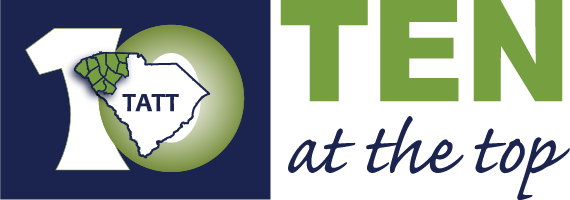










 These policies and procedures were the result of multiple stakeholders coming together for a common purpose. Our single, biggest level of success here at CDS this year is that we were able to keep our building open during the height of the pandemic when many other programs and businesses had to temporarily close. I am immensely proud of our partners and the collaboration we share. It is through this collective effort that we are able to serve children and individuals with developmental delays and disabilities so they can get the vital services they need, even during a worldwide pandemic.
These policies and procedures were the result of multiple stakeholders coming together for a common purpose. Our single, biggest level of success here at CDS this year is that we were able to keep our building open during the height of the pandemic when many other programs and businesses had to temporarily close. I am immensely proud of our partners and the collaboration we share. It is through this collective effort that we are able to serve children and individuals with developmental delays and disabilities so they can get the vital services they need, even during a worldwide pandemic.